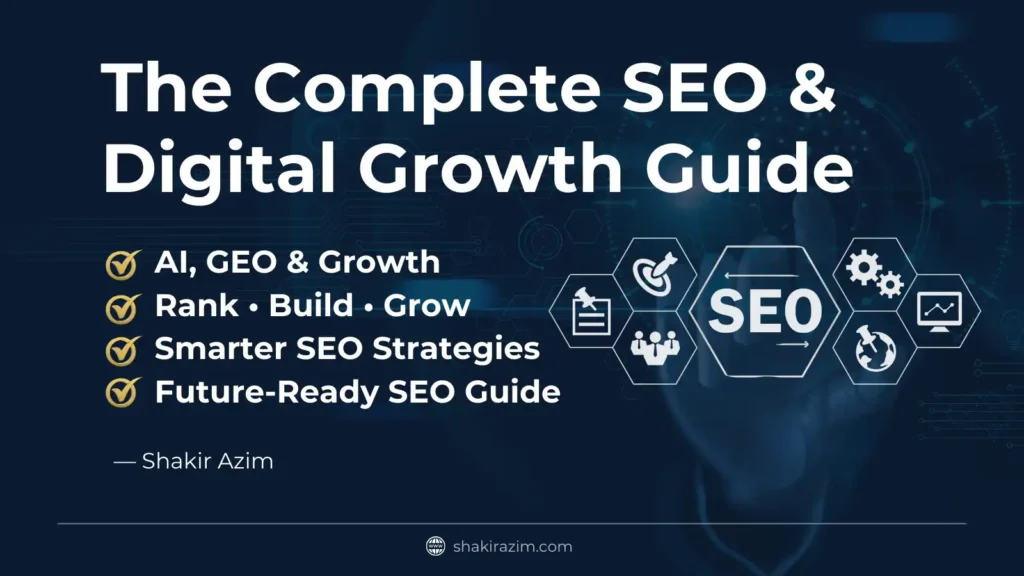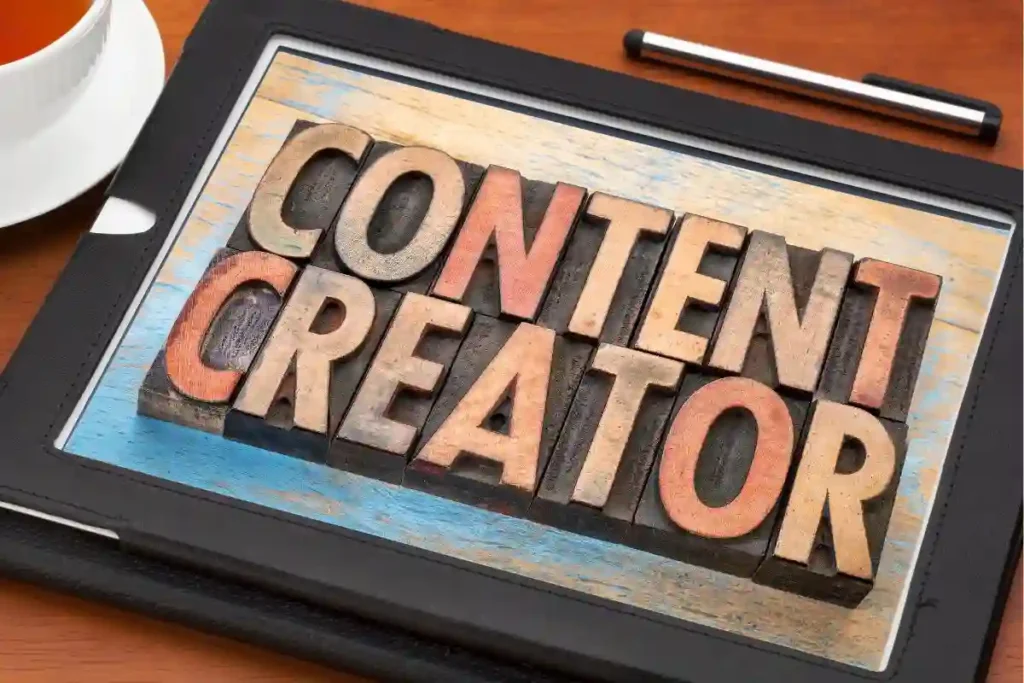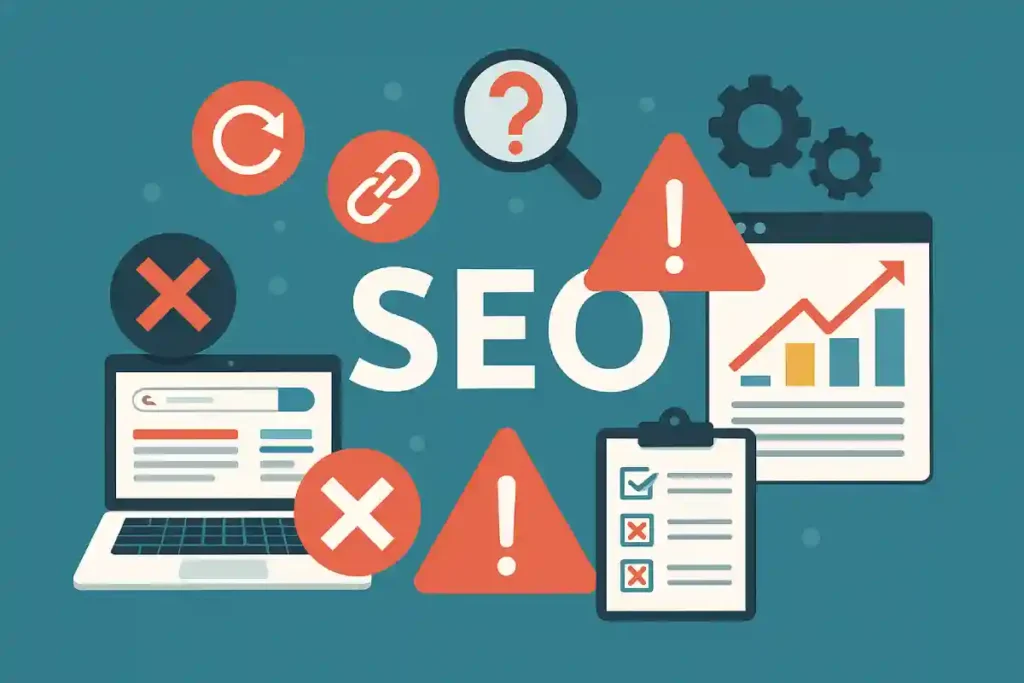The SEO & Digital Growth Guide 2025 is your guide to doing well in a world where AI drives search. It’s not enough to just be on the first page of search results anymore. People now demand quick, reliable responses thanks to Google AI Overviews, ChatGPT Browse, and even TikTok discovery. This tutorial will go over the basics, discuss Generative SEO (GEO), and provide you tips on how to create authority, visibility, and long-term growth.
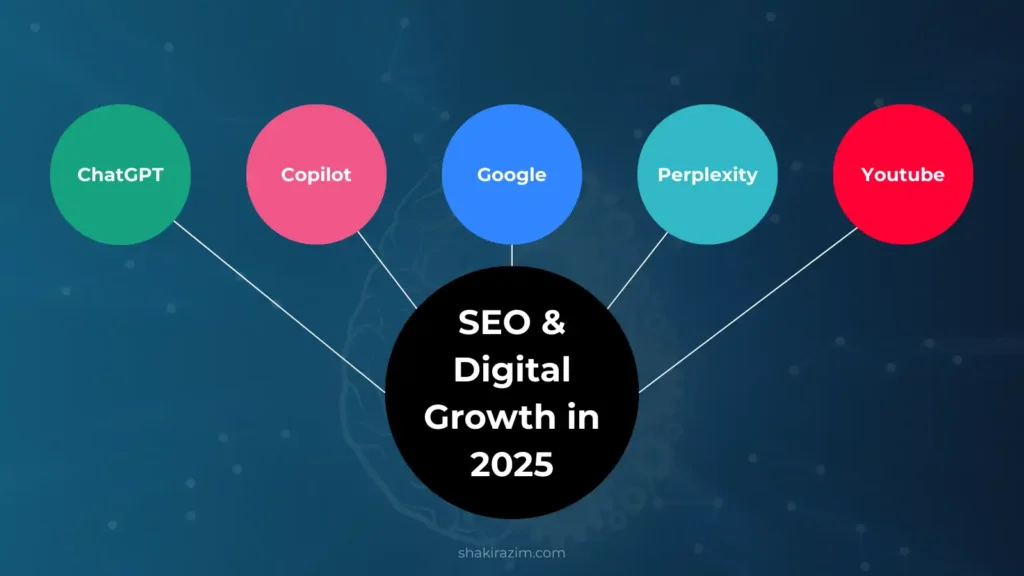
Why SEO & Digital Growth Matter in 2025
One thing is evident from the SEO & Digital Growth Guide 2025: SEO is no longer only about getting to the top of Google. In 2025, search is all about being seen on every platform where people hunt for answers. People don’t just ask Google for help anymore; they also ask ChatGPT, look through YouTube, and scroll through TikTok. This change is very important because:
- AI Overviews lower direct clicks. If your content isn’t set up for AI Overviews SEO, your site won’t get mentioned and you’ll lose visibility.
- Long-tail, conversational inquiries are the most common. Instead of typing “best SEO tools,” people instead ask whole questions like “Which SEO tool is best for beginners in 2025?” In any content strategy for 2025, it is important to optimize for these inquiries.
- Brand trust and authority are more important than backlinks. Google now values expertise, reviews, and reputation more than just the amount of links, which means that personal branding is now a part of SEO.
- Social and video search are developing quickly. TikTok, YouTube, and LinkedIn are now discovery engines, which shows that SEO needs to be part of a digital growth plan.
👉 This means that the previous way of using keywords is no longer useful for bloggers, producers, and businesses. Building trust, making structured content that works well with Generative SEO (GEO), and being present on several platforms so that you show up in Google, AI assistants, and social search are all important for real growth right now.
Understanding the New SEO Landscape
SEO in 2025 would be based on three main ideas: smarter search, AI, and user experience.
This is how things have changed:
1. AI Search Assistants
People are getting knowledge in new ways thanks to Google’s AI Overviews, Microsoft’s Bing Copilot, Perplexity AI, and ChatGPT’s search browsing. Users don’t have to read a lot of different websites; instead, they get short answers. Your job is to make sure that your site is mentioned in those responses.
2. Questions in Natural Language
You don’t have to type “best SEO tools” anymore. People now search the same way they talk:
- “Which SEO tool is the simplest for beginners?”
- “Will SurferSEO be better than Clearscope in 2025?”
Your content needs to answer these long, conversational questions.
3. E-E-A-T is More Important Than Ever
Google prioritizes Experience, Expertise, Authoritativeness, and Trustworthiness. That means:
- Tell us about yourself (author bio, credentials).
- Give real examples, not just general suggestions.
- Get mentions and references to build your authority.
4. Social Proof and Brand Signals
Google and AI engines now factor in brand strength. Your name or business will rank higher if it appears in credible sources, social media, and citations.
👉 The main point is that SEO isn’t about tricking the system anymore. It’s about gaining trust and being an authority on a number of platforms.
SEO Fundamentals That Still Matter
The basics are still important in 2025. Before you get into GEO and AI-driven strategies, these are your building blocks.
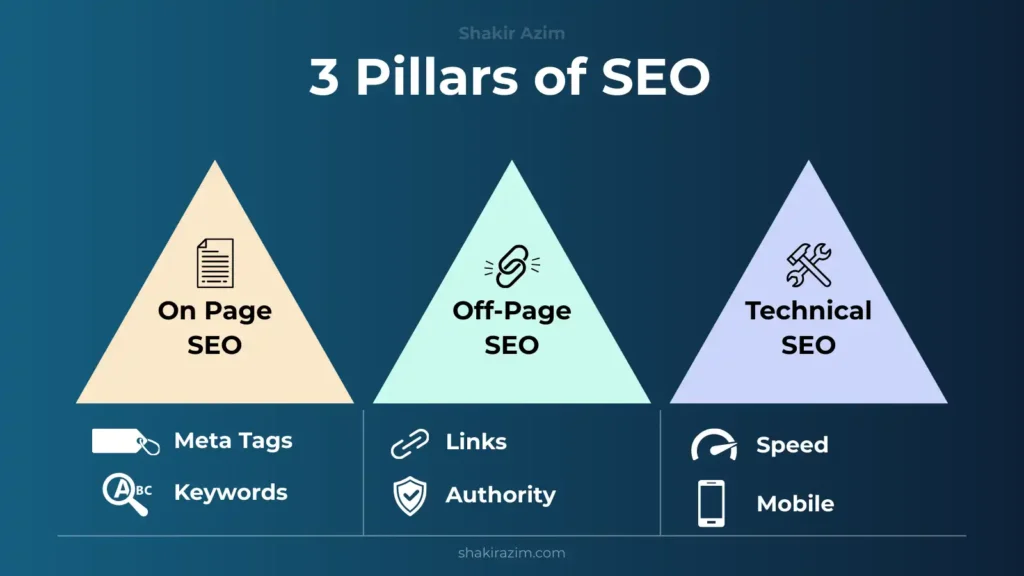
1. On-Page SEO
- Titles that are easy to understand: Include your keyword in a natural way.
- To make it easy for people and AI tools to scan your article, use the right headings (H1, H2, H3) to break it up into sections.
- Put your main keyword in the first 100 words in a way that sounds natural so that search engines can quickly figure out what your page or topic is about.
- Internal links: Link to some of your own posts or articles to create a cluster.
- External links: When you link to other sites, make sure they are reliable.
- Meta descriptions: Get people to click on your search results.
- Image alt text: Describe your images for SEO and people with disabilities.
💡 For example, instead of saying “Best SEO tools SEO SEO,” say “Here are the best SEO tools in 2025 to help bloggers and creators grow.”
2. Off-Page SEO (Building Authority)
Backlinks are still important, but quality is more important than quantity.
Ahrefs talked about why good backlinks are important.
Ways to gain authority:
- Guest posts on websites that are known to be safe.
- Working together on LinkedIn, YouTube, or podcasts.
- Building a strong personal brand so that your name itself is a ranking factor.
3. Technical SEO (Site Health)
A site that is broken or slow won’t rank.
You need to do:
- Work on speed optimization (Quick loading time).
- Design for mobile first (more than 65% of searches are done on mobile).
- LCP, FID, and CLS are the Core Web Vitals.
- Make your site secure by using HTTPS.
- Sitemap and robots.txt make the structure crawlable.
The official Search Central documentation from Google explains how Core Web Vitals affect search engine rankings.
The Growth of AI and Generative SEO in Search
Search is changing faster than ever. We’re no longer just typing in a keyword and scrolling through blue links—AI is starting to answer our questions directly. With tools like Google’s AI Overviews and other generative search features, people expect clear, conversational answers on the spot.
What does it mean to optimize a Generative Engine?
GEO means making content better for AI-powered search engines like Google AI Overviews, ChatGPT, and Perplexity. You want to write content that is well-organized, trustworthy, and easy for AI assistants to quote and use as a reference.
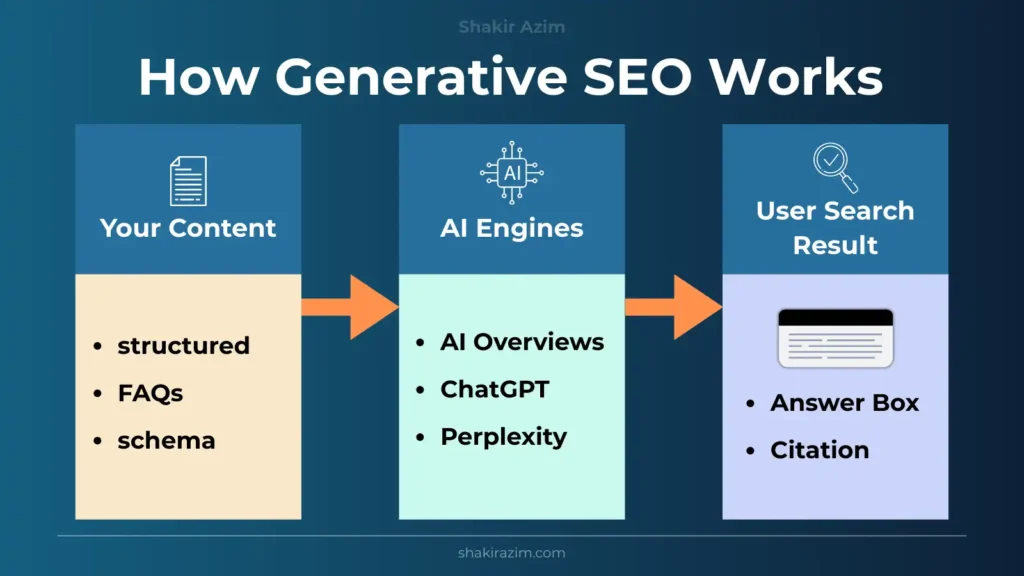
How to do it:
- Make sure your content is well-organized and based on facts.
- AI can easily pull out tables, bullet points, and FAQs.
- Include schema markup for things like FAQs, articles, and how-tos.
- Use reliable sources.
The New Role of AI Overviews in Search Rankings
Before: You needed Position #1.
Now: You can get a lot of traffic even if you’re lower in the rankings if you’re mentioned in the AI Overview.
Change by:
- Targeting questions with long tails.
- Adding sections for questions and answers.
- Emphasizing the author’s expertise and credibility.
AI Tools for SEO Processes
- Semrush, Ahrefs, and LowFruits are all good tools for keyword research.
- SurferSEO and Clearscope are two tools for optimizing content.
- Google Search Console and GA4 are two examples of analytics tools.
- ChatGPT, Jasper, and Writesonic are AI assistants.
👉 I’ve also put together a detailed list of the Best SEO Tools in 2025 to help you choose what actually works for you.
Content Strategy for Growth
Content fuels SEO. But random posts won’t cut it — you need a strategy.
For a full roadmap on planning, check my Content Strategy for Creators: How to Grow Your Blog & Brand (2025 Guide)
Building Topic Clusters
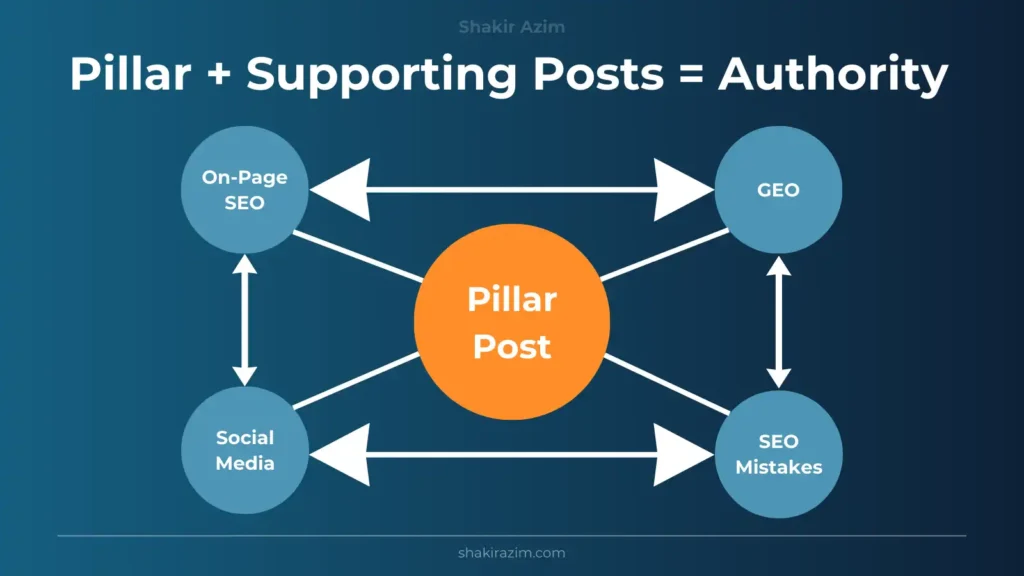
- A pillar guide (like this one).
- Supporting posts (e.g., On-Page SEO Checklist, Keyword Research).
- Internal linking between them.
Planning a Content Calendar
- Publish 1 quality post per week.
- Balance evergreen + trending topics.
- Update posts every 6 months.
Repurposing Content
One blog → many formats:
- Blog → LinkedIn post.
- Blog → YouTube explainer.
- Blog → Twitter/X thread.
- Blog → TikTok/Reel.
This builds reach and brand signals.
SEO Mistakes to Avoid in 2025
- Focusing only on keywords instead of intent.
- Ignoring GEO and AI Overviews.
- Buying spammy backlinks.
- Publishing and never updating.
- Running a slow, cluttered site.
Check my guide on 10 Common SEO Mistakes That Hurt Rankings for more details.”
SEO Tools & Resources
Free Tools
Paid Tools
Case Studies & Predictions
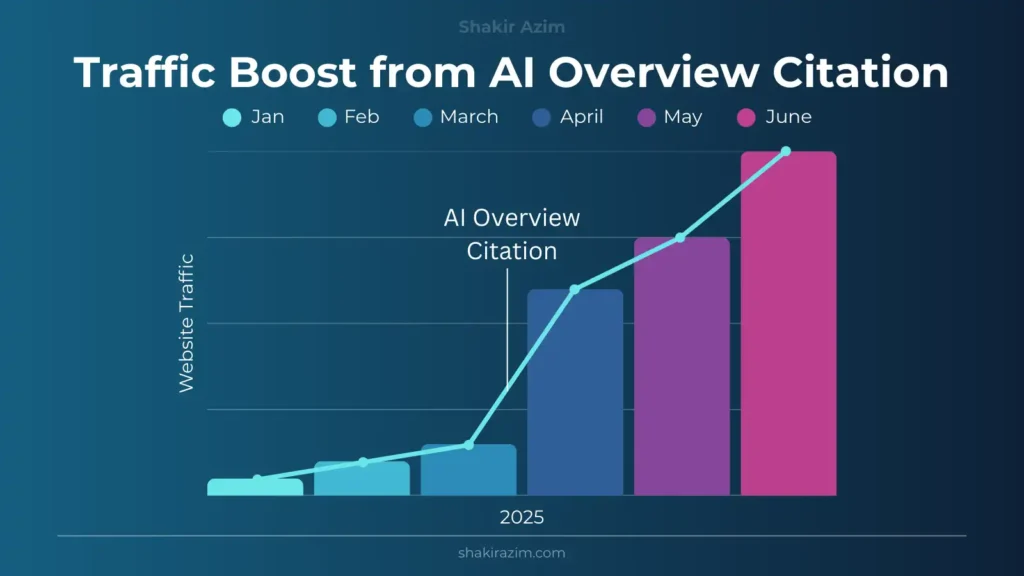
Case Study – Blogger: One person who blogs made a group of related posts about SEO tools. One FAQ was mentioned in a Google AI Overview within six months. The result was a 60% increase in organic traffic.
Case Study – Creator Brand: A creator turned blog guides into LinkedIn posts and YouTube Shorts. The brand got more mentions on different platforms, which gave it more authority in search.
What we think will happen After 2025
- AI helpers will be the best → GEO is becoming more important.
- Branding and trust are more important than keyword hacks.
- Search will combine with social, and the winner will be the one with the most authority on all platforms.
Conclusion – Your SEO Growth Roadmap
SEO in 2025 isn’t just about rankings. It’s about being discoverable everywhere: Google, AI Overviews, TikTok, YouTube, LinkedIn.
To succeed:
- Master the fundamentals.
- Embrace GEO & AI.
- Build topic clusters.
- Repurpose content.
- Stay consistent & update regularly.
👉 Bookmark this guide and check back — I’ll be linking all my detailed sub-guides here as they’re published.
Frequently Asked Questions (FAQ) – SEO & Digital Growth in 2025
Q1. What is SEO in 2025, and how is it different?
It has Generative SEO (GEO) for search engines that use AI. Basic principles still matter, but trust and authority are the most important.
Q2. What does GEO mean?
GEO means making your content better so that AI assistants like Google AI Overviews, ChatGPT, and Perplexity will link to your site in their answers.
Q3. How do AI Overviews change the way SEO works?
They cut down on clicks on regular results, but if you’re cited, you get more traffic and authority.
Q4. What basic things still matter?
SEO on the page, SEO off the page, and technical SEO.
Q5: How often should I change the content?
Every six to twelve months. Freshness is important.
Q6. Do I need paid tools?
Not for people who are new. Tools that are free are enough. Paid tools help you grow.
Q7. How long should the posts be?
Pillar posts should be between 2,000 and 3,000 words. Supporting posts: 1,200 to 1,800 words.
Q8. Is SEO dead?
No, it’s changing with AI, not going away.
Q9. How do beginners start?
Learn the basics, choose a niche, make pillars and clusters, use free tools, and stick with it.
Q10. What will happen after 2025?
Search, AI, and social media all work together to give you multi-channel authority. Branding and trust will be more important than ever.

